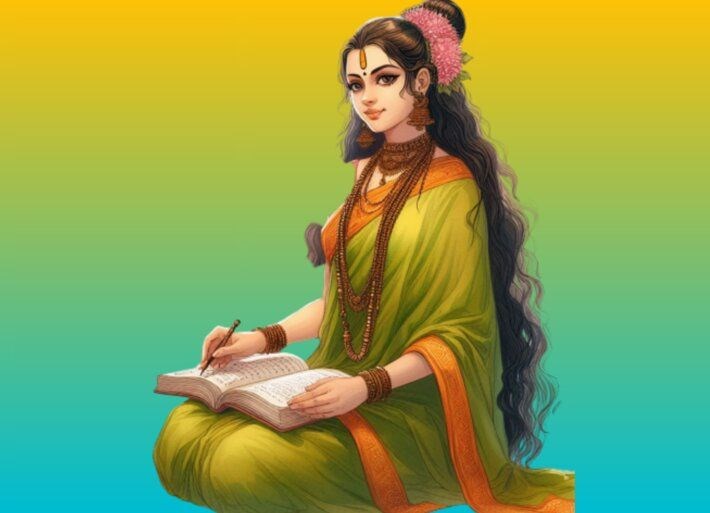
14-Jul-2025 , Updated on 7/14/2025 11:40:20 PM
Why Are Vedic Women Philosophers Not in Our School Books?
Systemic Exclusion of Female Thinkers
School textbooks do not mention Vedic women philosophers such as Gargi Vachaknavi and Maitreyi, a phenomenon that shows a systematic exclusion. These personalities, recorded in the ancient literature of India, like Upanishads, were involved in major philosophical arguments and were involved in the early Indian ideas. Their diligence is due to the fact that they are not mentioned because patriarchal interpretations of later ages downplayed their functions. This masculine orientation was always ready to be passed on and continued through subsequent curriculum development. This discount invalidates a historical account with the false default that intellectual leadership should also be male-only, obliterating critical input into Indian philosophy.
Patriarchal Distortion of Vedic Records
The omission of Vedic women philosophers in the school curricula is the direct product of patriarchal tampering with history. Female contributions to knowledge were systematically pushed aside by male scholars and scribes, and this went on over centuries. The early evidence of famous female philosophers, Gargi and Maitreyi appear in the early Indian literature, in the Rigvedic hymns and Upanishadic dialogues. Their roles were however thinned down by selective recording, omission and subsequent interpretive remarks. The writings that celebrated female intellectual power or spiritual equality were either blurred or re-interpreted in such a way to fit more and more constrained social values. This strategic gatekeeping excluded women's philosophical accomplishment making sure that it would never enter the history stream and, thus, the education curriculum.
Colonial Education Erased Indigenous Voices
The neglect of Vedic philosophical thinkers such as Gargī Vācaknavī and Maitreyī in school syllabuses dates to colonial-era initiatives in school reform. The ideology behind the Eurocentric ideology that was imposed by the British administrators neglected indigenous ways of knowledge as backward or mythical, effectively oppressing non-western intellectual traditions. Writings about women Vedic scholars challenged Western scholarly representations of unevolved, patriarchal India and thus were forgotten purposely. Colonial policies generally derogatory attitudes created to the native scholarship broadly weakened its worth; more specifically, women in general were hampered in trying to have their contributions seen by patriarchal reinterpretations. These figures were never restored as post-independence curricula that maintained colonial forms of structuring failed to alter these practices.
Contemporary Curriculum Ignores Vedic Scholarship
The fact that Vedic women philosophers are not represented in modern curricula shows a great disregard of Vedic knowledge. Other such women as Gargi Vachaknavi and Maitreyi, whose accounts of philosophical contributions can be traced in various forms of literature including the Upanishads, are also left out. Some of their absence, it turns out, makes a major hole in the presentation of Indian intellectual heritage. These women are always ignored in standard education books, they are never mentioned as having existing roles in ancient Indian philosophy. Such omission has a direct consequence of providing students with an incomplete picture in the way of Vedic thinking.
Restoring Women's Intellectual Legacies Essential
There is a huge missing of Vedic women philosophers such as Gargi Vachaknavi and Maitreyi, who should have been taught in schools. Such removal is as a result of the patriarchal historical framework and androcentric studies systemically diminishing the role of women recorded in ancient writings. Their discussions are the origin of philosophical thinking. excluded representation of these figures leads to an unwanted history of knowledge. This needs to be corrected and this requires concerted efforts to include them somewhere in the educational text where they deserve to be, in the company of their male counterparts. One of the central roles in offering a proper historical account and breaking the deep-seated prejudice is reclaiming this intellectual tradition.

Content Writer
Hi, I’m Meet Patel, a B.Com graduate and passionate content writer skilled in crafting engaging, impactful content for blogs, social media, and marketing.
Join Our Newsletter
Subscribe to our newsletter to receive emails about new views posts, releases and updates.
Copyright 2010 - 2026 MindStick Software Pvt. Ltd. All Rights Reserved Privacy Policy | Terms & Conditions | Cookie Policy